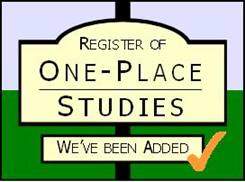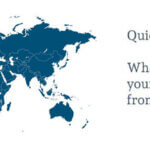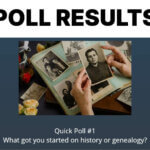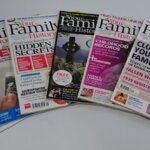 I’m not even going to say how quickly the weeks are flying by, because they are. But we’ve come to end of November, and during that period I have read a heap of wonderful blog posts that I want to share with you.
I’m not even going to say how quickly the weeks are flying by, because they are. But we’ve come to end of November, and during that period I have read a heap of wonderful blog posts that I want to share with you.
In no particular order, we cover stuff like etiquette at cemeteries, the value of ‘events’ for a genealogist, FamilySearch’s lookup service, a new genealogy disease, who owns the rights to a photograph, calendars, dying and your online presence and a heap more.
I know that I’ve mentioned before (each month) that I find that reading blog posts helps me keep up with the latest news, products as well as what’s happening in general in the world of genealogy. And if you happen to already follow me on Twitter, and to some extent Google+, you already know that I like to share with you the interesting things I read.
Anyway I hope you find the following Genealogy Blogs … useful, and well, inspiring.
Eventful Genealogy
I’m new to Tony’s Parallax View blog, but as a number of my genie friends shared it, or commented about it, I went and looked. Here he discusses just how important the “event” is in genealogy. In fact he goes on to day that it is one of the most “undervalued entities in family history”. Read the full story …
Cemetery Etiquette: Graveyard Do’s and Don’t’s
I’m sure everyone who is reading this loves taking a trip to a cemetery. For some it is to visit ancestors long past, or more recent family members, for others it’s photographing the headstones, while for others it’s purely just being in a cemetery, seeing the old headstones, and wondering what these people were like. Whatever the reason for the visit … just remember there are some etiquette rules you should follow. Read the full story …
Have You Used the FamilySearch Free Lookup Service?
Dick Eastman who wrote this post says it well … “this must be the best-kept secret in genealogy!” I have to agree that I didn’t know about it, and I’m sure many of his readers didn’t either. But FamilySearch actually provides a free lookup service for genealogy books and microfilms that are available at the genealogy-central Family History Library in Salt Lake City. The free service does ask you to supply specific information, but will not respond to queries like “Please send me all the information you have about my great-grandfather.” Read the full story …
Genealogical Technical Apprehension (GTA)
Regular readers of my posts will know that I’m a fan of James Tanner’s Genealogy Star blog. He’s topical, informative, and gives opinions, and in this one he’s added a touch of humour which gets me giggling everytime I read it. Here he talks about the new disease is Genealogical Technological Apprehension or GTA. And how this “this terrible malady, although if afflicts a broad segment of the genealogy community”. Read the full story …
Copyright and the Sale of Rights
The Legal Genealogist, Judy G. Russell gets asked some curly questions, and using her legal background knowledge answers them for readers. Here she was asked about the copyright of a photograph, and who owns it, the photo studio, or the purchaser. As always it’s an intriguing read. Read the full story …
Why it is So Important to Read the Marginalia!
Heather of the Nutfield Genealogy blog, not only reminds us, but shows us with her examples, why it is so important to view the original records, and not just rely on indexes. Read the full story …
Understanding the Julian Calendars and Gregorian Calendars in Genealogy
Our friends over at GenealogyInTime Magazine have written this article which not only tells you why you need to know about the Julian and Gregorian calendars, but also how to go about understanding them. Read the full story …
Before DNA? Death Certificates
Long before there was this thing called DNA, there were death certificates to track family diseases and the conditions that led to the death of a family member. In this post we read about Leslie Drewitz, and her project of compiling her family’s “medical genealogy”. DNA testing can be very expensive and confusing. Death certificates are the sort of things that we often trade with other researchers, therefore curtailing our costs. Careful examination of the these certificates can often reveal more than expected. Read the full story …
When Bad Ancestors Happen to Good People
Amy is the writer of the We Tree blog, and she is like any of us genealogy-obsessed people, in that we actually drool over black-sheep ancestors, as putting it simply they make the historical hunt more interesting. They provide good stories and allow us to access interesting records. Here she tells us about her great grandfather who was accused of and charged with many crimes in several counties. But she doesn’t just share her excitement of the find, she shares the reaction of her non-genie family members in finding out the news. Read the full story …
Dying Online / If I Shall Die Before I Wake
This is an important post, because I’m sure everyone who is reading this has an online presence. You have an email account, and a Facebook account. What about Twitter, Google+, Instagram, Tumblr and the many more out there? What happens to them when you die? James Tanner Tackled this question in his post Dying Online, and then did a follow-up to it with If I Shall Died Before I wake. Both are an excellent read, as it is something that everyone in our generation will face somewhere along the line.
Dying Online – Read the full story …
If I Shall Die Before I Wake – Read the full story …
Bringing history to life or distorting the past?
I found my way to this post through a tweet. You’ve probably seen the collection of “realistically colorized historical photos, which makes the past seem incredibly real”, that have been doing the rounds of social media recently. Here Gordon from The Posterity Project blog asked historians a thought-provoking question: Does colorizing historic photos bring the past closer, or distort it? Read the full story …











Hi Alona. I just came across your Inspiring Genealogy Blogs after seeing a mention of my own Parallax View blog (thanks…blush…). I like what you’re doing and especially pleased that it led me to the ‘Understanding Julian Calendars and Gregorian Calendars in Genealogy’ link. Representation of other calendars (both ancient and modern) in computer data is something genealogy (and history in general) have ignored for too long. I have previously written about this problem at: http://www.parallaxview.co/familyhistorydata/research-notes/dates-calendars/ as part of my STEMMA project, and still plan to put something on my blog about it. I’m not sure if you’re aware of FHISO (http://fhiso.org) but I was one of several people making technical proposals to them for solutions to this problem. These submissions are all visible on their Web site under their ‘call for papers’ tab.
Hi Tony, I’m glad that I found your blog and so pleased that you found mine useful too ;-). Keep up the great work.
Thanks for the mention, Alona! I just saw this post now, so sorry for being late. Happy Holidays!